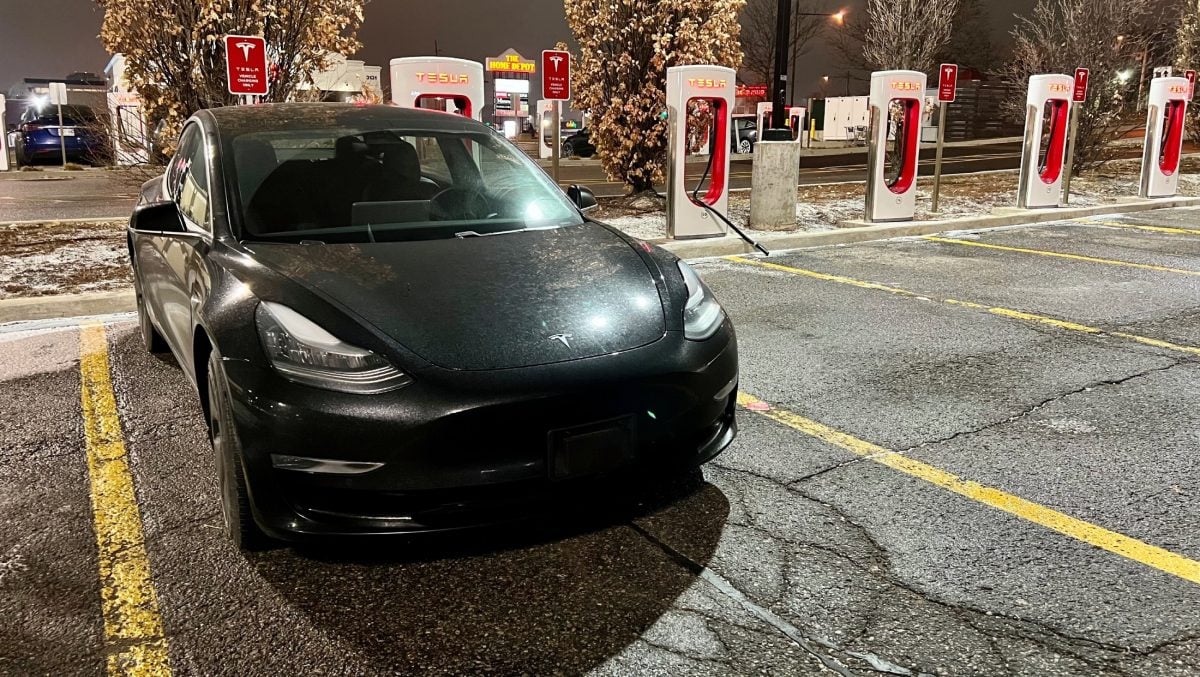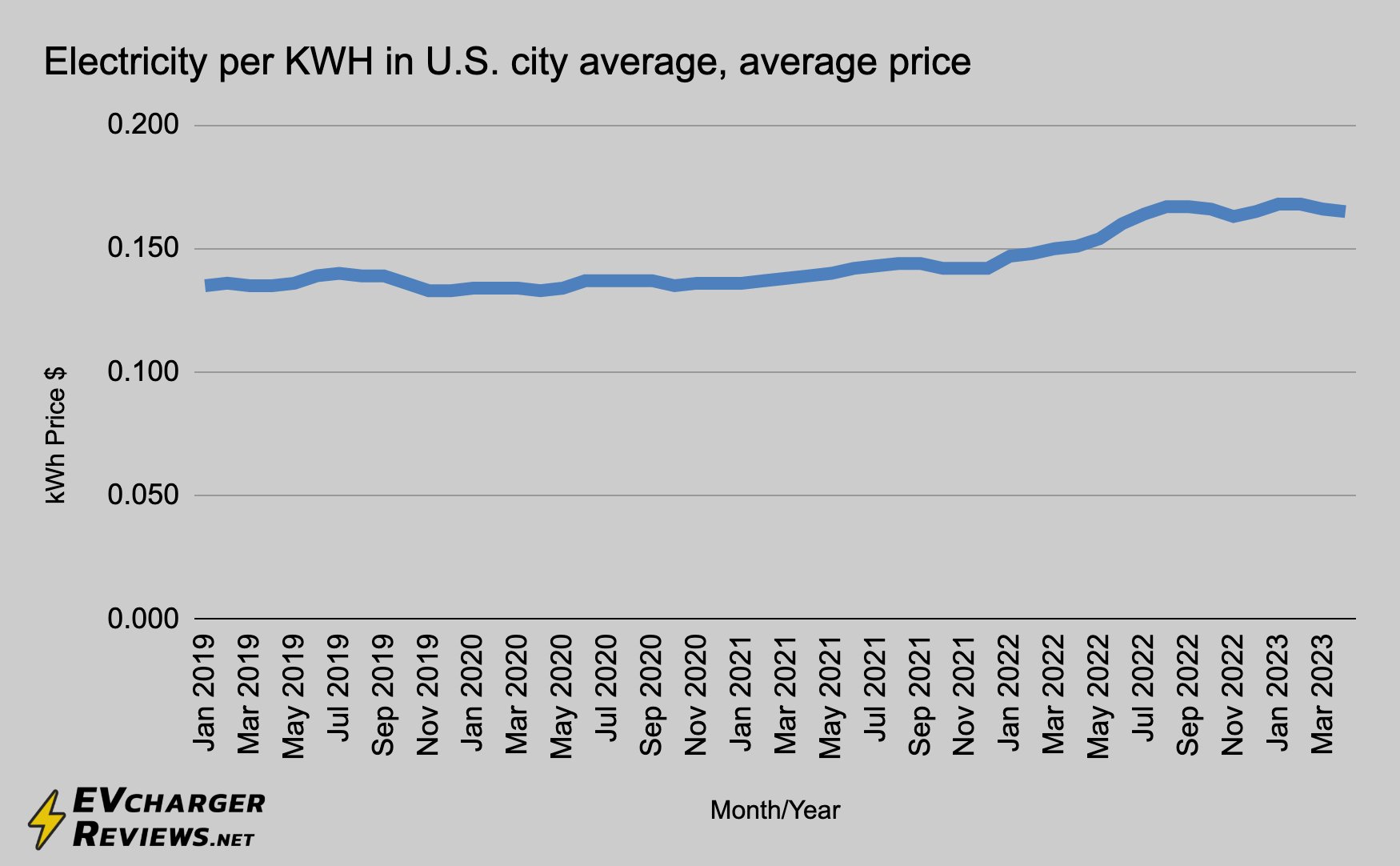We have witnessed high economic inflation levels during the past 18 months. Everything from food bills to housing is becoming more expensive. Electricity rates are no exception, with double-digit percentage increases in many US regions.
Are you still saving money as you’re racking up those miles on your EV? The answer used to be an obvious ‘YES’ in the past, but what about in 2023?
Charging at home during off-peak hours is usually the cheapest way to fuel your EV. By contrast, charging at public DC fast charging stations is the most expensive, with prices topping 50+ cents per kWh in some states.
But household electricity prices have been on the rise recently, with customers in New England states regularly facing prices of 30 cents per kWh or more, and the San Diego area recently surpassing 47 cents.
Model 3 vs. Gas Sedans
Let’s take the wildly popular Tesla Model 3 as an example. It’s one of the most popular EVs on the roads, and it also happens to be one of the most energy efficient. The rear-wheel drive base model has an EPA consumption rating of 250 Wh per mile. As every EV driver knows, the official consumption and range figures are usually optimistic. We are going to assume that we are only able to achieve 80% of the rated range, as is common for highway driving, so the energy consumption is more likely to be closer to 312 Wh per mile.
For the gasoline-powered sedan, let’s take a Toyota Camry or Honda Accord class vehicle. Both of these can run on regular octane gasoline, and archive in the area of 32 MPG (city+highway) in most common trims. We will assume that we can get 90% of those MPGs in regular driving, so that is 28.8 MPG realistically.
The US national average electricity cost in April 2023 was $0.165 /kWh. So the Model 3 would have a running cost of 5.29 cents per mile. In the Boston area that would mean 10.63 cents per mile, and 14.88 cents in San Diego where electricity is going for 47 cents per kW. Tesla Supercharger costs vary between $0.30-$0.52 per kWh, depending on location and time of day. So the worst case for charging exclusively at Supercharging stations will be about 16.22 cents per mile.
The US national average gas price for regular gasoline was $3.735 in April 2023. That will come out to 12.97 cents per mile. But out on the West Coast, the average price per gallon was $4.493 (15.60 cents/mile) and in San Diego, it was $4.886 (16.97 cents/mile).
Model Y vs. Premium Gas SUVs
The Tesla Model Y will serve as our baseline for the electric/gas SUV comparison. The Model Y is also insanely popular, but this vehicle is priced to compete with more premium segments of the car market. Let’s compare it to the Audi Q5 and BMW X3 segment, where turbocharged engines demand premium fuel.
- The Model Y is rated at 270 Wh/mile, but we’re going to assume 338 Wh/mile at 80% of the claimed range.
- The BMW X3 has an EPA rating of 24 MPG, we are going to assume 90% (21.6 MPG mixed driving)
Crunching those numbers for our SUV comparison gives us the following findings.
The Model Y cost per mile is:
- 5.56 cents per mile when charging at home at the national average cost of $0.165 /kWh
- 11.53 cents per mile in the Boston area where local energy costs $0.341 /kWh
- 16.12 cents per mile in the San Diego area where energy spiked to $0.477 /kWh
- 17.57 cents per mile when charging exclusively at Supercharging station on the most expensive tier (52 cents kWh)
The BMW X3 xDrive30i cost per mile comes out to:
- 20.76 cents per mile at the national average price for premium gas of $4.485/gallon (April 2023)
- 24.18 cents per mile in Los Angeles where premium gasoline went for $5.223/gallon
Conclusion and Findings
Yes, it is still cheaper to drive an electric car than a gasoline internal combustion engine car, for most people. However, if you’re relying on expensive public charging stations the cost per mile is going to be similar to driving a gasoline-powered sedan. But if you are able to charge at home at $0.30 /kWh or less, the savings are going to be substantial.
Interestingly, it is not significantly more costly to drive a larger electric vehicle than a smaller one. The fact that many premium gasoline vehicles demand premium gasoline creates an unnecessary tax. Luckily, there is no such thing as premium electricity. The energy cost per mile of the Tesla Model Y is 4X less than a BMW X3 when comparing average national home energy costs vs. the average national price for premium gas.
This comparison is purely focused on fuel/energy and does not consider maintenance or insurance costs for the vehicle.
Considering buying a Tesla? Use our referral link to get $1,000 off, and help support our content.

